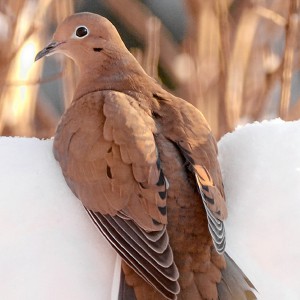Ask a local Master Gardener about Rabbit-proofing your plants
| Published: 04-11-2019 3:32 PM |
Q: How do I keep rabbits from eating my plants? They really did a job on my Bachelor’s Button last year. —L. T. Granby
A: Those rabbits are cute, but they sure can wreak havoc on a garden, especially the tender young leaves of newly sprouted, springtime plants we are starting to experience now. You can tell when a rabbit has visited by the clean cuts on the leaves. Deer, by contrast, do not have sharp top front teeth so they rip plants, leaving ragged edges.
While there are no guaranteed cures, there are a couple of ideas you can try. Part of what determines how you deter rabbits depends on whether you are playing offense or defense.
To play offense, purchase plants that are less attractive to rabbits. These include ones they find smelly, fuzzy, or distasteful. Here are some examples of flowers they do not like much: butterfly weed (Asclepias tuberosa – butterflies love it!), artemisia, lavender, nepeta, columbine, and snapdragons.
Vegetables are often on rabbit menus, too. We are not the only ones who like sprouts and baby lettuce. Again, plants they tend to avoid or eat less are ones they find hairy, distasteful, smelly or thorny. Here are some ideas for veggies less appealing to rabbits: tomatoes, asparagus, onions, artichoke, squash and potatoes.
Contrarily, playing defense means you already have plants in the ground, you want to keep them, and you want to defend them against furry munching mammals. This is a bit harder to do.
I have heard incredulous stories from gardeners about how they watched through their windows in amazement as rabbits in their yard condensed themselves into creatures ¼ their normal size and squeezed through fencing purchased in hopes of deterring them. To play defense, rabbit appropriate physical barriers and deterrents are the way to go.
Article continues after...
Yesterday's Most Read Articles
 Treehouse, Big Brothers Big Sisters turn race schedule snafu into positive
Treehouse, Big Brothers Big Sisters turn race schedule snafu into positive
 Northampton man will go to trial on first-degree murder charge after plea agreement talks break down
Northampton man will go to trial on first-degree murder charge after plea agreement talks break down
 Area property deed transfers, April 25
Area property deed transfers, April 25
 Contentious dispute ends as Hampshire Regional schools, union settle on contract
Contentious dispute ends as Hampshire Regional schools, union settle on contract
 South Hadley’s Lauren Marjanski signs National Letter of Intent to play soccer at Siena College
South Hadley’s Lauren Marjanski signs National Letter of Intent to play soccer at Siena College
 Primo Restaurant & Pizzeria in South Deerfield under new ownership
Primo Restaurant & Pizzeria in South Deerfield under new ownership
One suggestion is bloodmeal. Sprinkle this organic product onto the ground around the plants you want to protect and on the plant’s leaves, too. It is safe for the plant, but distasteful for the rabbits. You will need to reapply it after a rain. Non-toxic chemical sprays, such as Liquid Fence with its off-putting rotten egg and garlic aroma, are also options, though you likely want to avoid putting them directly on vegetable foliage. As always, use only according to manufacturers’ instructions.
If you do not like going out after it rains, you could consider rabbit fencing. Yes, rabbits have become such an issue there is special fencing named after them to address their compression capabilities. It is a good idea to attach chicken wire fencing or fence mesh to the bottom of any vertical fencing such as this to inhibit their digging. Chicken wire fencing by itself would likely also work as an entire fence.
One last idea for this column is using raised beds and/or containers. Having them 2 feet high is ideal for keeping out these critters. Mounting pots on elevated surfaces or even an overturned pot also helps achieve this height requirement.
These are a few ideas people have found helpful and I hope you will, too, L.T. Thanks for asking a (local) Master Gardener.
Have a gardening dilemma? Please send questions, along with your name/initials and community, to the Western Massachusetts Master Gardener Association at AskAMasterGardener @wmmga.org. One question will be selected and answered per week. wmmga.org

 Valley Bounty: Grass-fed animals that feed the grass: Gwydyr Farm in Southampton focuses on ‘restoring the connection between land, food and people’
Valley Bounty: Grass-fed animals that feed the grass: Gwydyr Farm in Southampton focuses on ‘restoring the connection between land, food and people’ Weekly Food Photo Contest: This week’s winner: Mary Chicoine of Easthampton
Weekly Food Photo Contest: This week’s winner: Mary Chicoine of Easthampton  Speaking of Nature: A romantic evening for two birders — To hear the wonderful sounds of the Saw-whet Owl one must go outside at night
Speaking of Nature: A romantic evening for two birders — To hear the wonderful sounds of the Saw-whet Owl one must go outside at night Speaking of Nature: Where have all the birds gone?: They’re there, and here’s a handy tool to keep track of their appearances
Speaking of Nature: Where have all the birds gone?: They’re there, and here’s a handy tool to keep track of their appearances
